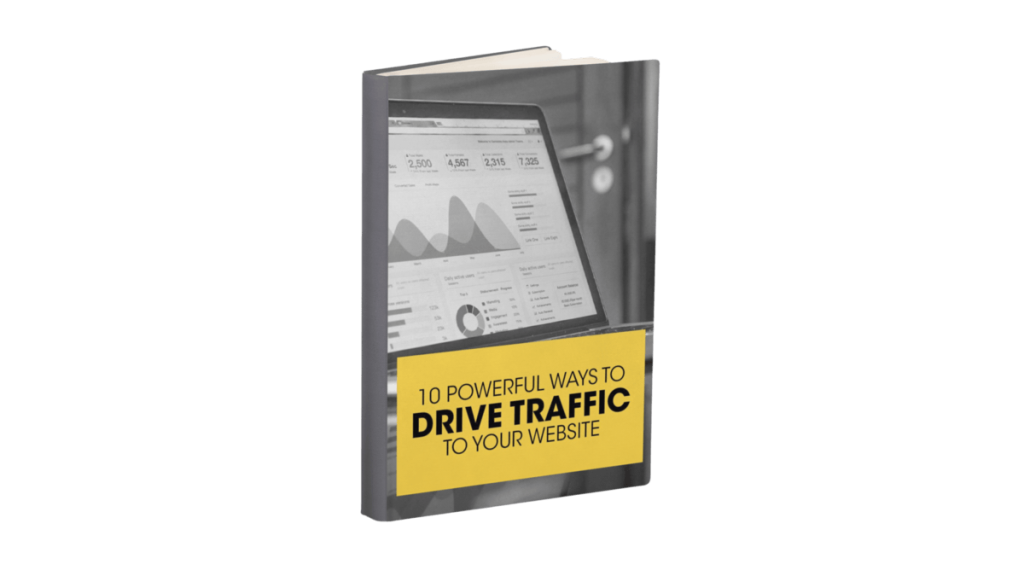Crafting High Value Content for Lead Generation and Authority Building
Introduction to
Ebooks and Whitepapers
In today’s digital landscape, businesses need more than just a blog or a social media presence to stand out they need high quality, in depth content that offers real value to their audience. Ebooks and whitepapers are two of the most effective tools for delivering that value. These long-form content formats allow businesses to explore topics in greater depth, showcase their expertise, and provide useful information that readers can apply to their challenges or goals.
Creating ebooks and writing effective whitepapers is a strategic way to demonstrate thought leadership, drive traffic, and generate qualified leads. By offering insightful and well-researched content, businesses can build trust with their audience and position themselves as authorities in their industries.
But ebooks and whitepapers serve slightly different purposes. Ebooks are generally more accessible and widely used for educating a broad audience. They often have a more casual tone and are great for nurturing leads. On the other hand, whitepapers are usually more data-driven, formal, and tailored for B2B audiences, often used to establish thought leadership or explain complex industry trends. Whether you’re focusing on ebook marketing or whitepaper marketing, both formats offer significant opportunities for lead generation, authority building, and brand development.
In this guide, we’ll explore the key components of creating engaging ebooks and whitepapers, how to use them for lead generation, and the best marketing strategies to ensure your content reaches your target audience.

The Process of Creating Informative
Ebooks and Whitepapers
Before you dive into creating ebooks or writing whitepapers, it’s essential to have a clear strategy in place. The most successful long-form content is carefully planned, deeply researched, and thoughtfully designed to deliver maximum value to your readers.
Creating Engaging
Ebooks
The process of creating engaging ebooks starts with identifying your target audience and the specific pain points or interests they have. Your ebook should address these challenges while offering practical solutions. Here are the key steps to creating an effective ebook:
What is the primary goal of your ebook? Are you educating, informing, or guiding your audience toward a solution? Knowing your audience will help you tailor the content to their needs and interests.
Conduct thorough research to ensure your ebook is rich with valuable information. Once you have the necessary data and insights, create a detailed outline that organizes your content logically. Your ebook should flow naturally from one section to the next, guiding readers through the topic.
One of the key differentiators of successful ebooks is their content depth. Dive deep into the subject matter, offering actionable advice, unique insights, and real-world examples. Avoid surface-level writing, as readers expect detailed and practical information from an ebook.
Visual elements like infographics, charts, and images help break up large blocks of text and make the content more digestible. Use visuals to reinforce key points and enhance the reader’s understanding of the material.
The design of your ebook is just as important as the content. A well-designed ebook should be visually appealing, easy to navigate, and branded with your company’s logo and colors. Pay attention to typography, layout, and the overall aesthetic to ensure a professional look. Best practices for ebook covers include using bold, clear titles and a simple but striking design that reflects the ebook’s topic.
Choose the right format for your ebook. PDF is the most commonly used format due to its compatibility across devices, but you may also consider offering ePub or Mobi formats for users who prefer reading on e-readers like Kindle. Host your ebook on your website to capture leads and promote it across various platforms, including email, social media, and industry forums.
Writing Effective
Whitepapers
Whitepapers differ from ebooks in that they are usually more formal, data-driven, and tailored to a business or technical audience. Writing effective whitepapers requires in-depth research, a clear structure, and a focus on providing well-supported arguments or analysis. Here’s how to approach whitepaper creation:
Whitepapers are most valuable when they explore niche or complex topics. Whether it’s a whitepaper on industry trends, a case study, or a technical analysis, the content should be highly specific and backed by credible research or data.
Whitepapers are typically used in B2B marketing and thought leadership, so they require a more formal, academic tone. Ensure that your writing style is professional and authoritative, while still being clear and accessible to your target audience.
To make your whitepaper credible and persuasive, incorporate case studies in whitepapers and use relevant data or statistics. These elements support your arguments and provide real-world examples of how the reader can benefit from your insights.
While whitepapers are data-driven, they still benefit from storytelling techniques. Craft a narrative that engages the reader, leading them through the problem, solution, and results. Storytelling in whitepapers can make complex information more relatable and easier to follow.
Like ebooks, whitepapers should also include visual elements that support the content, such as graphs, charts, and diagrams. Ensure that the whitepaper is well-formatted, with clear headings and sections, making it easy for the reader to navigate.
Using Ebooks for
Lead Generation
One of the most significant benefits of ebooks is their ability to generate leads for your business. By offering high-quality, downloadable content in exchange for contact information, you can capture leads and nurture them through your sales funnel.
Lead Generation with Ebooks
To maximize lead generation with ebooks, follow these steps:
Gating your ebook behind a form is a proven way to capture leads. When users provide their contact information (typically their name, email, and job title), they gain access to your ebook. This approach helps you identify potential leads and begin nurturing them through targeted follow-up.
Create a dedicated landing page for each ebook, highlighting the value readers will receive. Your landing page should include a compelling headline, a brief description of the ebook’s contents, and a clear call-to-action (CTA) that encourages users to download the ebook.
Once you’ve captured leads through your ebook, use email marketing to nurture them further. Send follow-up emails that provide additional value, such as related blog posts, webinars, or product demos. Over time, you can move these leads closer to making a purchase.
High quality ebooks with deep, actionable content increase the likelihood that your audience will find value in your offering. Content depth in ebooks not only establishes trust but also increases the likelihood of converting readers into customers.

Ebooks vs Whitepapers for Lead Generation
Both ebooks and whitepapers can be used for lead generation, but each serves a slightly different purpose. Ebooks are typically used for broader lead generation efforts, attracting a larger audience with a more accessible tone. Whitepapers, on the other hand, are often used for B2B marketing or to target decision-makers with high-value, data-driven content.
Building Authority and Expertise Through In-depth Content
Both ebooks and whitepapers serve as powerful tools for authority building in your industry. By offering in depth, well researched content, you can position your brand as a thought leader and trusted resource.

Whitepaper Marketing Strategies for Authority Building
Whitepapers are often seen as definitive guides on specific topics, which makes them ideal for establishing authority. A strong whitepaper marketing strategy involves:
By publishing whitepapers, you can attract attention from industry publications, peers, and influencers. This positions your company as a leader in your field, boosting credibility and visibility.
Writing whitepapers on industry trends helps position your company as forward-thinking and innovative. Analyze recent developments, offer predictions, and provide actionable insights that demonstrate your understanding of the industry’s future.
By publishing whitepapers, you can attract attention from industry publications, peers, and influencers. This positions your company as a leader in your field, boosting credibility and visibility.
Marketing and Distribution
Strategies
Once your ebook or whitepaper is ready, the next step is ensuring that it reaches your target audience. Effective distribution of ebooks and whitepapers is crucial for maximizing reach, lead generation, and authority building.
Distributing Ebooks and
Whitepapers
Here are some best practices for distributing ebooks and whitepapers:
Send targeted email campaigns to your subscriber list, highlighting the value of your ebook or whitepaper and encouraging downloads.
Promote your ebook or whitepaper across social media platforms, including LinkedIn, Twitter, and Facebook. Use relevant hashtags and encourage sharing to reach a wider audience.
Collaborate with industry influencers or thought leaders to promote your whitepaper or ebook. Influencer endorsements can help you reach a larger, more engaged audience.
Optimize your ebook landing pages for search engines by using relevant keywords in the title, meta description, and page content. SEO strategies for ebooks ensure that your content is discoverable by users searching for information related to your topic.
Submit your whitepaper to industry-specific whitepaper directories or content libraries to increase visibility among B2B audiences.
Promotion Strategies for Whitepapers
When it comes to promoting whitepapers, it’s essential to target your efforts toward the right audience. Consider offering exclusive access to your whitepaper through partnerships with industry publications or as part of a gated content strategy on high-traffic websites. Promotion strategies for whitepapers can also include running paid social or display ads that target decision-makers in your industry.


Conclusion: Converting Readers into Leads
Ebooks and whitepapers are invaluable tools for businesses looking to generate leads, build authority, and provide value to their audiences. By creating high-quality, informative content, you can establish your brand as a trusted resource, nurture leads through the buyer’s journey, and ultimately drive conversions.
At Nerve Agency, we specialize in creating engaging, high-quality ebooks and whitepapers that deliver real value to your audience. From research and content creation to design and distribution, we help you leverage ebooks and whitepapers to generate leads, build authority, and drive business growth. Contact us today to learn how we can craft custom ebooks and whitepapers tailored to your business needs. Let’s turn your content into a powerful tool for lead generation and thought leadership!
